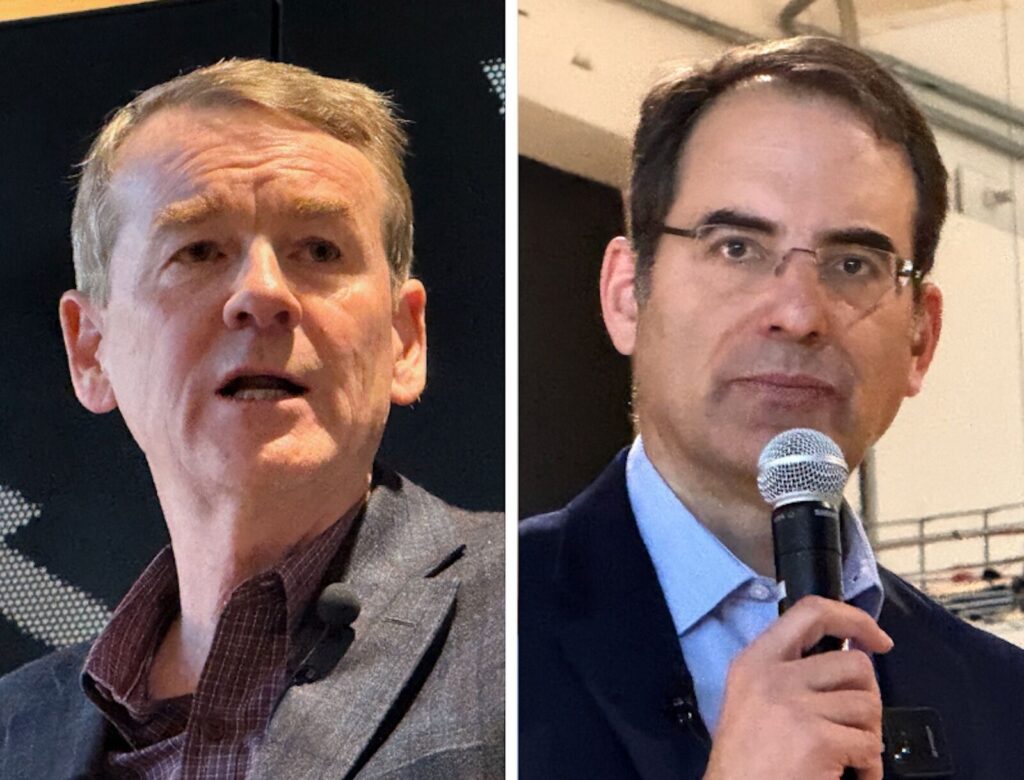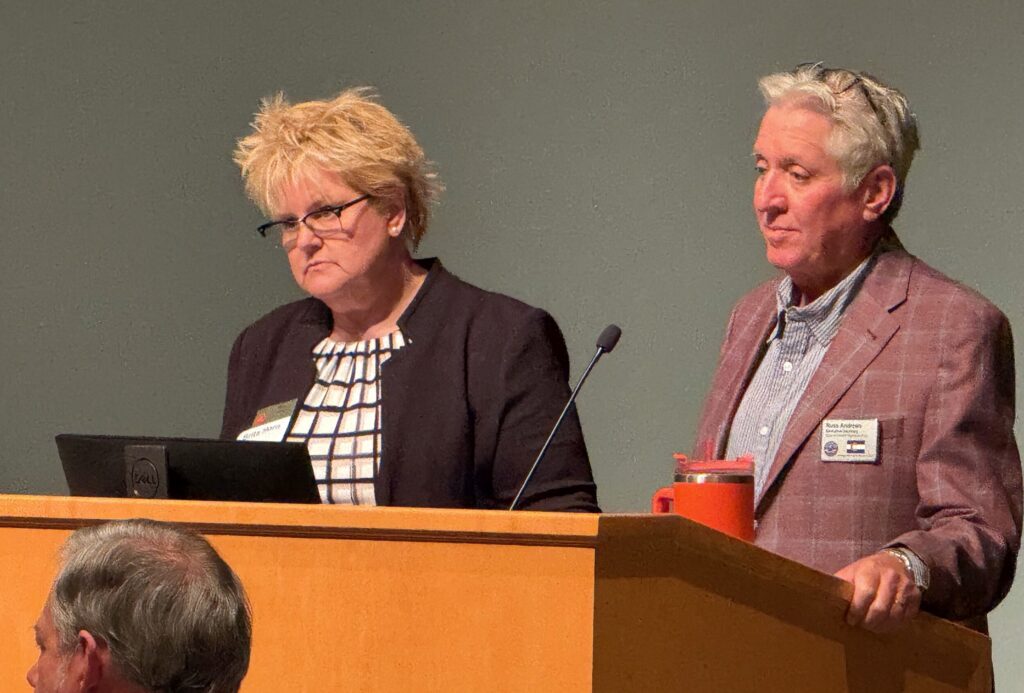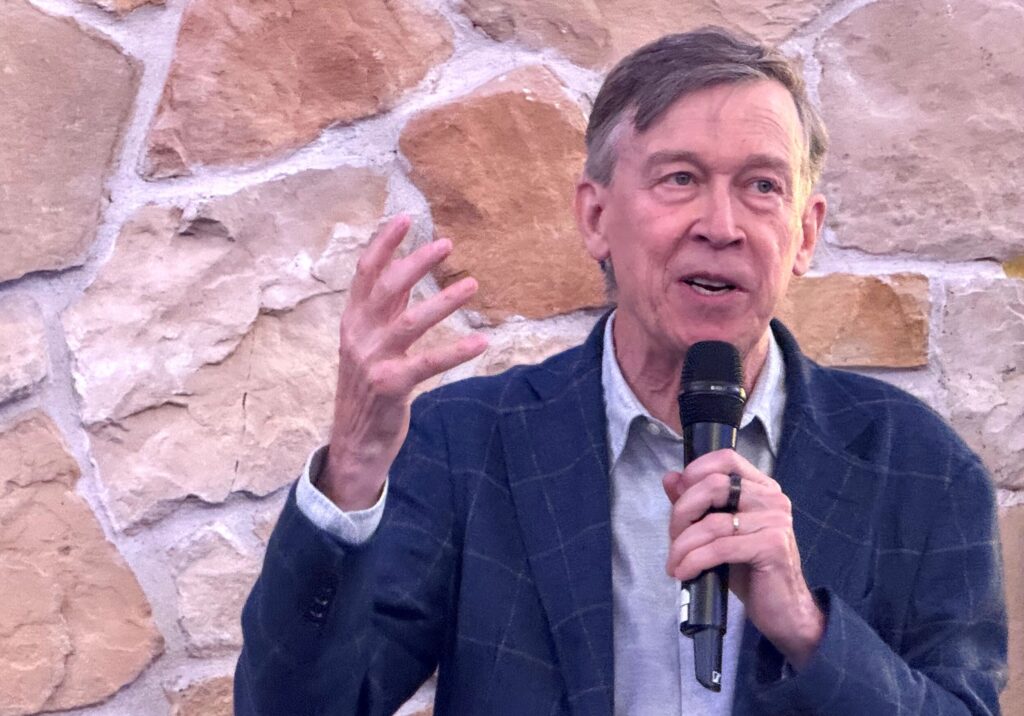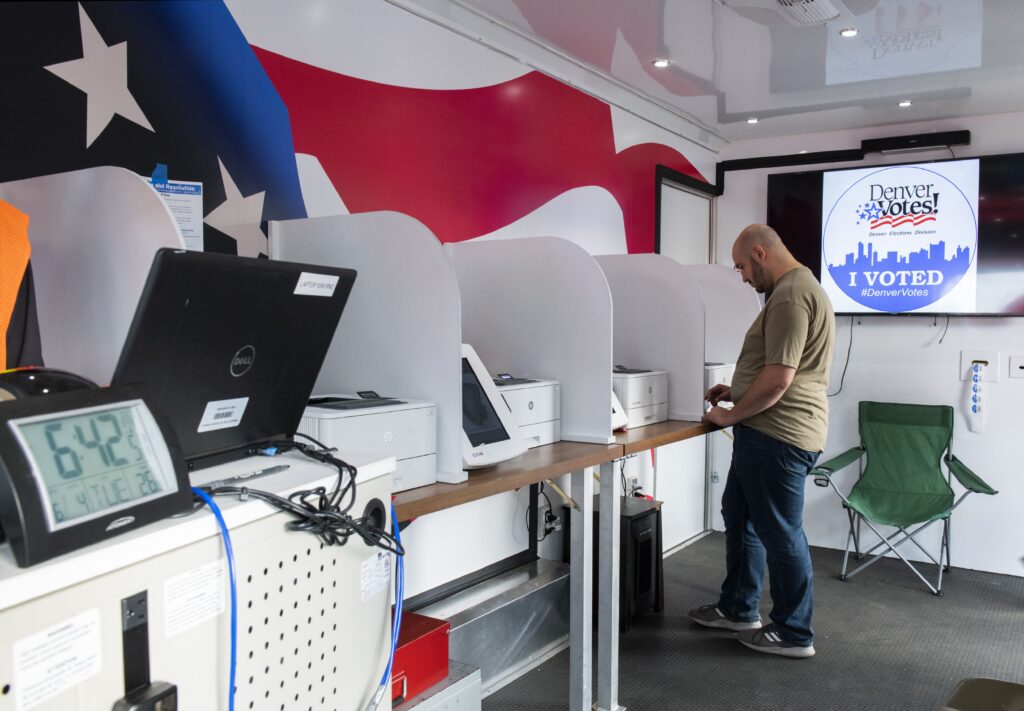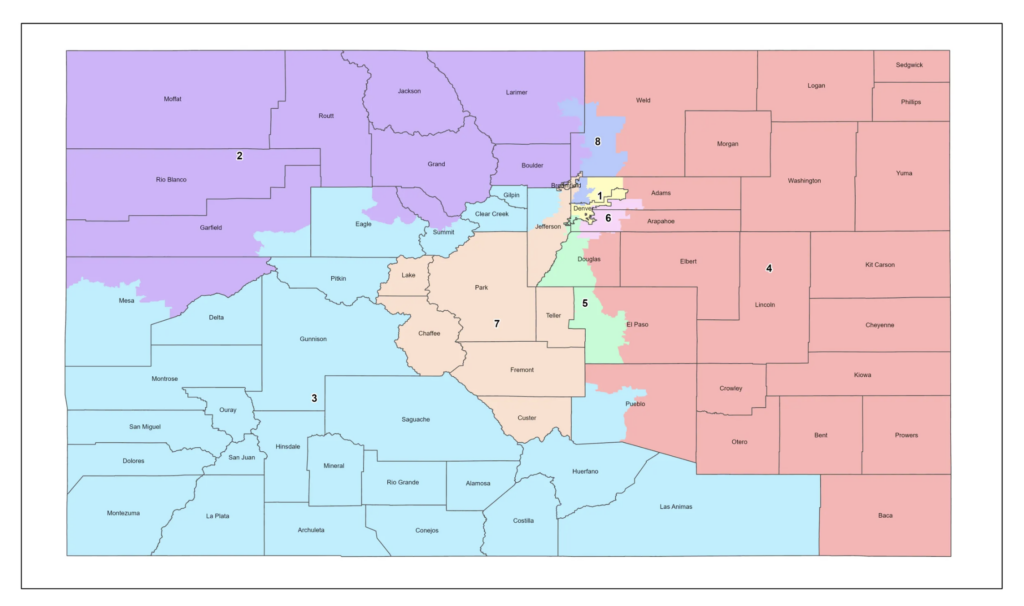Bennet ‘optimistic’ for bipartisan support of alternative policing bill as O’Dea slams plan

The battle to represent Colorado in the U.S. Senate spilled over into a debate over expanding Denver’s alternative policing program nationwide.
U.S. Sen. Michael Bennet, D-Denver, introduced a bill to fund alternative policing programs across the country, inspired by the Denver Support Team Assisted Response (STAR) Program. As Bennet held a press conference praising the bill on Friday, Joe O’Dea – Bennet’s Republican challenger for the November election – slammed the bill on Twitter, calling it an empty stunt.
“STAR is a win for the community and it’s a win for our police,” Bennet said. “I look forward to the bipartisan passage of this bill. … I feel optimistic for the bill to find Republican support. Every single community in America is facing similar challenges to the challenges Denver is facing right now.”
The Supporting Mental Assistance Responder Teams (SMART) Community Policing Act would dedicate funding to create or expand programs that use mental health professionals, case managers and outreach teams to respond to low-level, non-violent 911 calls. Under the proposal, these civilian-led community policing programs would address nonviolent crises related to mental health, poverty, homelessness and substance use disorders.
Bennet said he hasn’t heard from Republican senators about the bill yet, but has gotten positive feedback from Democrats and expects the same from the other side of the aisle.
However, Republican O’Dea called the bill “window-dressing” intended to gain voter support before the election without helping to address crime in a series of posts on Twitter.
“Colorado is not a model for managing crime,” O’Dea said. “Liberal politicians have made Colorado unsafe. Crime here is exploding.”
Although he didn’t say so in the string of tweets attacking Bennet over the bill, O’Dea supports Denver’s STAR program, a campaign spokesman told Colorado Politics.
Bennet is pushing the measure amid a surge in crime in Colorado. Violent crime has also surged in major cities across the country.
O’Dea criticized Bennet’s voting record on crime-related issues, saying he “has not been a friend” to law enforcement.
Denver Police Chief Paul Pazen stood in firm support of Bennet’s SMART Community Policing Act on Friday.
“What we can point out, regardless of any type of political ideology, is better outcomes for individuals in crisis,” Pazen said. “Everybody can agree to that. Better outcomes for individuals in crisis is not a political stance. … It’s not red and blue counties, it’s folks who want to help people.”
Denver launched its STAR Program in June 2020, responding to low-level emergencies with paramedics and mental health clinicians. The program has responded to over 5,000 calls to date, none of which required police backup, city officials said.
Pazen said the program reduces strain on law enforcement by freeing officers to focus on violent crime, while also providing the right services to help people in crisis, such as by connecting them to homeless shelters and substance abuse treatment.
Dustin Yancy is a Denver Health paramedic who has worked in Denver’s STAR Program since 2020. Yancy said the calls they respond to are often for people with nowhere to go. He said he develops trust and rapport with them, such as one Denver man who he encountered in the streets several times before convincing him to enter a long-term impatient treatment center.
“I’m so proud to be involved in this kind of work,” Yancy said. “Often, I believe the most impactful service we provide is just to listen to people, people who may not have been heard or listened to in a long time.”
Yancy said one of his proudest moments happened when he responded to a welfare check at a senior community and found an elderly man who was recovering from a recent surgery. He said the man was unable to stand long enough to cook himself meals and didn’t know how to access support. Yancy then sat with the man and set him up with Meals on Wheels, as well as called his doctors to schedule him an appointment.
“I think often of that call, just being able to talk to him face-to-face in his house. If an ambulance had come, they would have taken him to the hospital and then he’d go back home and it’d be a cycle of nothing happening,” Yancy said.
“The reward for me is to see our community members be empowered, uplifted and see a way out of crisis.”
Editor’s note: This story has been updated to include a comment from Republican U.S. Senate candidate Joe O’Dea’s campaign elaborating on the candidate’s position.




